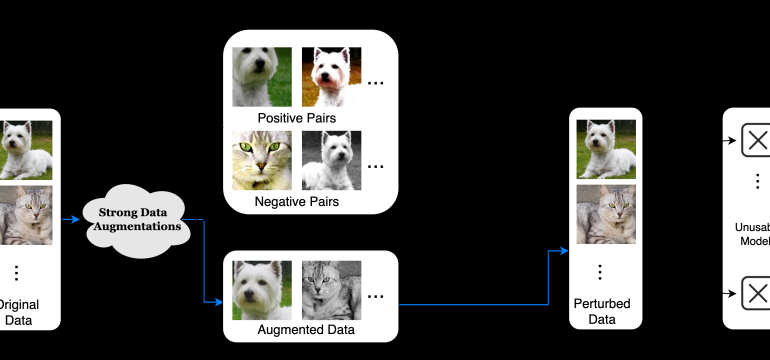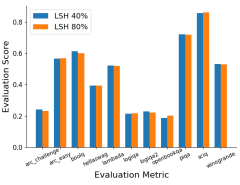Authors: Yihan Wang, Yifan Zhu, Xiao-Shan Gao
Published on: February 06, 2024
Impact Score: 8.22
Arxiv code: Arxiv:2402.04010
Summary
- What is new: Introduces attacks (AUE and AAP) that achieve state-of-the-art unlearnability for both Supervised Learning (SL) and Contrastive Learning (CL) algorithms with reduced computational consumption.
- Why this is important: Existing methods fail to provide unlearnability for both SL and CL algorithms, leaving data protection at risk.
- What the research proposes: Proposes AUE and AAP attacks using contrastive-like data augmentations in supervised error frameworks to effectively prevent both SL and CL from training usable models.
- Results: Verified AUE and AAP attacks achieve superior worst-case unlearnability for SL and CL while consuming less computation, showing potential for application in real-world settings.
Technical Details
Technological frameworks used: Supervised and contrastive error minimization/maximization
Models used: AUE (Adversarial Unlearnability Enhancement) and AAP (Adversarial Augmentation for Protection)
Data used: Commercial datasets and private data
Potential Impact
Data protection services, cybersecurity firms, and industries relying on high-volume data collection and analysis could significantly benefit or need to adapt.
Want to implement this idea in a business?
We have generated a startup concept here: DataGuardAI.




Leave a Reply